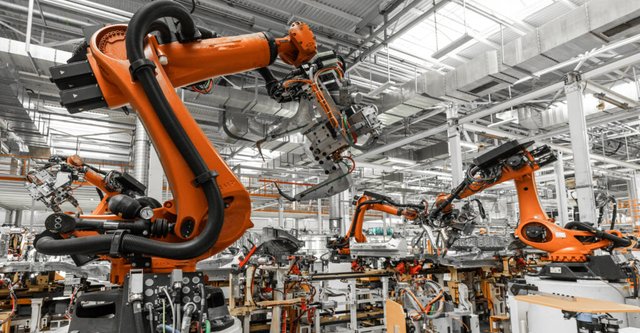
In the realm of industrial automation, the efficiency, precision, and reliability of machinery play pivotal roles in maintaining the competitive edge of enterprises. Central to these machines' functionality are actuators, devices designed to convert energy into motion. As we delve deeper into the actuator spectrum, we uncover the indispensable role of ETI Systems and similar entities in fostering innovation and efficiency within this field.
Unveiling Actuators: The Heartbeat of Industrial Automation
At its core, an actuator is an electromechanical device that makes the world of automation tick. From the simple task of turning a valve to the complex maneuvering of robotic arms, actuators are the unsung heroes ensuring the seamless operation of industrial systems. They come in various forms, including hydraulic, pneumatic, and electric, each with its unique advantages and suited for different applications.
The Electric Actuator: A Glimpse into the Future
Among the different types of actuators, electric variants stand out due to their precision, control, and eco-friendliness. These actuators convert electrical energy directly into mechanical motion, offering a cleaner, more efficient alternative to their hydraulic and pneumatic counterparts. With the advent of smart factories and the Internet of Things (IoT), electric actuators have become integral to the automation ecosystem, allowing for more sophisticated control systems and data integration.
ETI Systems: Pioneering Actuator Technology
ETI Systems is at the forefront of developing advanced actuator solutions tailored to meet the evolving demands of industrial automation. Their commitment to innovation is evident in their wide range of products, from linear actuators capable of delicate movements to rotary actuators designed for high-torque applications. By focusing on the development of smart, energy-efficient actuators, ETI Systems is not just contributing to the advancement of industrial machinery but is also addressing the urgent need for sustainability in manufacturing processes.
The Impact of Actuators on Industrial Automation
The integration of advanced actuators into industrial systems has revolutionized how operations are conducted across various sectors, including manufacturing, automotive, and aerospace. Actuators enhance the automation process by improving the speed, accuracy, and reliability of machines. This leads to increased operational costs and minimized human error. Furthermore, the ability of actuators to operate in environments that are hazardous for humans underscores their significance in ensuring workplace safety.
Navigating the Challenges
Despite their myriad benefits, the adoption of advanced actuators is not without challenges. High initial investment costs, the need for skilled personnel to manage sophisticated automation systems, and concerns regarding cyber security are some of the hurdles faced by industries. Moreover, as technology evolves, there's constant pressure on companies like ETI Systems to innovate and keep their products compatible with the latest industrial standards.
The future of industrial automation is intrinsically linked to the evolution of actuators. With trends leaning towards miniaturization, energy efficiency, and intelligent control, the actuator technology of tomorrow is expected to be more compact, powerful, and smarter. Innovations such as piezoelectric actuators, which offer precision control at microscopic levels, and soft actuators, which mimic the flexibility of biological muscles, are set to redefine the capabilities of automated systems.
The Role of ETI Systems in Shaping the Future
As a leader in actuator technology, ETI Systems is poised to play a crucial role in shaping the future of industrial automation. By investing in research and development and forging partnerships with other innovators in the field, ETI Systems is not just contributing to the technological advancement of actuators but is also helping industries navigate the transition toward more sustainable and efficient manufacturing practices.
Conclusion
Actuators, often overlooked, are fundamental to the advancement of industrial automation. Through the continuous efforts of companies like ETI System, these devices are becoming more sophisticated, paving the way for smarter, safer, and more efficient industrial operations. As we stand on the brink of a new era in automation, the actuator spectrum continues to expand, promising unprecedented possibilities for industries worldwide. In this journey, the role of ETI Systems and similar entities will be indispensable, not only as innovators but also as architects of the future industrial landscape.